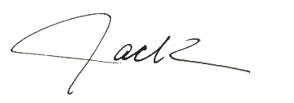The Undying Myth of the 77-Cent Dollar
![]()
© Jack Cashill
Published in Ingramsonline.com - May 2014
Like a stubbornly persistent zombie, (I’ve been watching too much Walking Dead), the notion that women get paid less than men for the same work does not die easily.
Unlike zombies, however, this notion requires a certain finesse. You cannot just smash it over the head with a shovel and call it a day.
In fact, as with zombies, it is healthier to avoid the subject altogether than to engage it, especially on Facebook and especially with your female friends and relatives. Recently, however, I chose to wade into one such tiff because the participants were savaging one of my favorite Missourians. That would be Phyllis Schlafly, arguably the most accomplished and influential woman in the state’s history.
Schlafly, who will be 90 in August, is as active today as she was 70 years ago, when she worked her way through college test-firing machine guns at an ammunition plant. Despite a war-driven, 48-hour work week, Schlafly graduated Phi Beta Kappa from Washington University and went on to earn her masters from Radcliffe.
Some years later, Schlafly self-published A Choice, Not an Echo, a book that sold 3 million copies, helping Barry Goldwater win the 1964 Republican nomination and creating the movement that led to the Reagan presidency. It was the first of a dozen or so books that she would write, many of them on military policy.
In the 1970s, Schlafly provoked the scorn of America’s progressive elites when she launched a Quixotic campaign against the Equal Rights Amendment, then just a few states away from ratification.
She earned their undying enmity when she succeeded.
During the course of this campaign, the fiftysomething Schlafly somehow found the time to graduate near the top of her class from Washington University’s Law School.
Through the St. Louis-based Eagle Forum that she founded, Schlafly has stayed engaged in just about every major policy debate that has come down the pike since then, including, of course, the diversionary “paycheck fairness” gambit played recently by the White House.
Not surprisingly, it was something that Schlafly reportedly said that started the flare-up on my Facebook pages. Responding to her alleged remarks in an “Open Letter” was one Madison Kimrey, a young lady wonderfully smug in a way only a 12-year-old could be.
“This brings us to the idea you have that women shouldn’t have equal pay because it will make it more difficult for them to find husbands,” wrote young Madison. “What you’re doing is attempting to limit my choices, and I don’t appreciate that.”
In the supportive comments that followed, it seemed obvious that no one, including Madison, had either read Schlafly’s original commentary or knew anything about Schlafly. I know Phyllis just well enough to have once gotten a very forceful phone call from her when I took a position she opposed.
Let me assure my Facebook friends that, agree with her or not, Phyllis Schlafly is one smart, formidable woman. Only a fool would underestimate her. To the friends in question, however, “Phyllis Schlafly” was just a cardboard cutout and her position a vestigial punch line.
Against my better judgment, I weighed in: “In that Schlafly worked as a ballistics gunner and technician during World War II and earned a J.D. from Washington University Law School 35 years ago—after having six children—I suspect she knows a little more than young Madison (or her parents) about what women can accomplish. Just sayin’.”
No one liked my comment. What I got instead of likes were comebacks such as, “if Schlafly truly knows a little more than young Madison … why did she write that women shouldn’t have equal pay because it will make it more difficult for them to find husbands?”
Not believing Schlafly said any such thing, I decided to hunt down the source of Madison’s angst. The fact that no one, Madison included, either quoted Schlafly or linked to her article made the task difficult. But after some searching, I found the source, an article titled “Facts and Fallacies About Paycheck Fairness.”
As expected, Schlafly did not say what she was accused of saying. Rather, in her typically straightforward way, Schlafly dissected the myth that women are paid only 77 cents for every dollar a man earns. As she noted, although U.S. law calls for equal pay for equal work, women on aggregate make less than men because they work less than men. She was referring, of course, as were her opponents, to work outside the home.
For any number of reasons, most notably the bearing and raising of children, women on average “spend fewer years as full-time workers outside the home, avoid jobs that require overtime, and choose jobs with flexibility to take time off for personal reasons.”
This much should be obvious.
Again on average, wrote Schlafly, men “are more willing to endure unpleasant working conditions to earn higher pay, doing dirty, dangerous outside work.” The fact that men are the victims of 92 percent of work-related deaths is a tribute to more than just their stupidity (although, admittedly, stupidity may be a part of it).
Well into the article Schlafly raised the issue that set Madison off, what Schlafly identified as “hypergamy,” the idea that women “typically choose a mate (husband or boyfriend) who earns more than she does.” To be sure, Schlafly never said anything like, “Women shouldn’t have equal pay.”
What she did say is that in those segments of society where the pay gap has disappeared—specifically in the African-American community and in the Millennial generation—marriage and family have suffered as a result.
This is an argument not easily settled on a Facebook page—or in an Ingram’s column for that matter—but it deserves better than the empty sloganeering that its proponents all too often encounter.
Schlafly deserves better, as well.
It is both ironic and unfortunate that, like some of the world’s great female door-openers—Margaret Thatcher and Golda Meir come quickly to mind—Schlafly has had the door slammed on her legacy by women who know her only through postings on Facebook.




